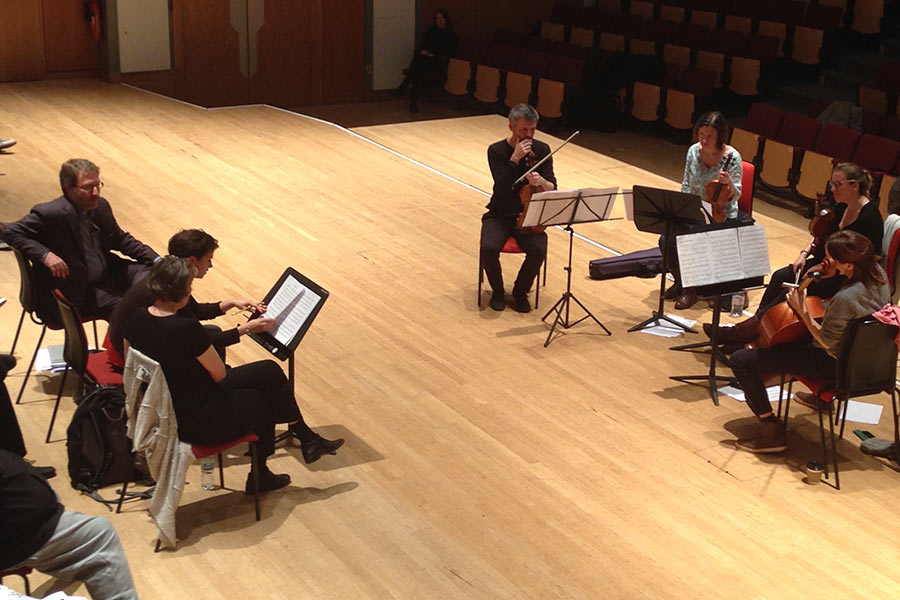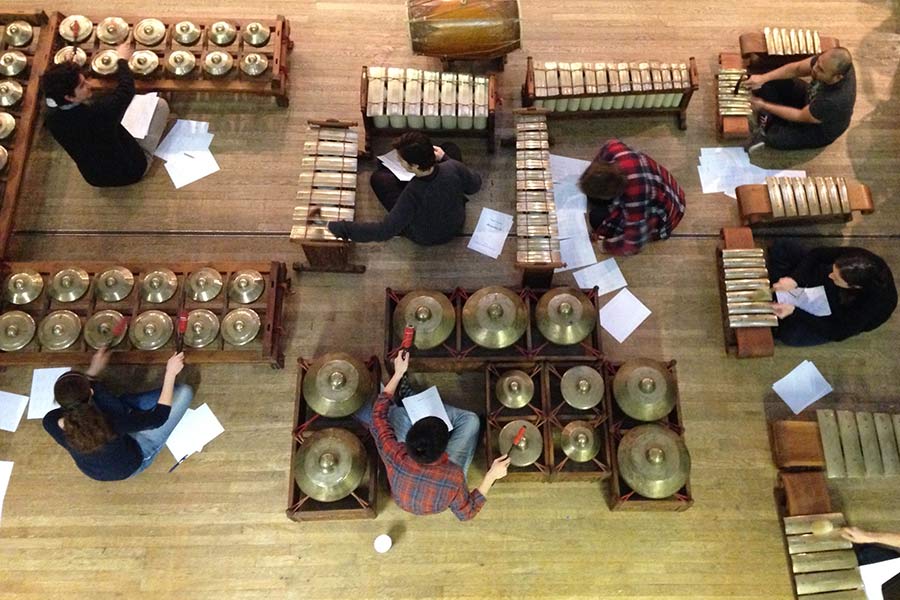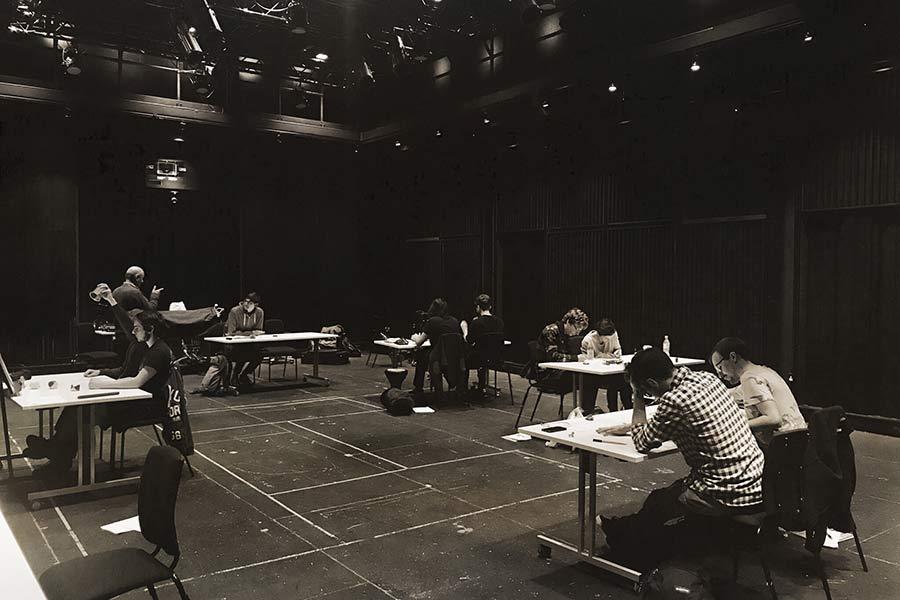Composition Classes

Whilst studying with us either at BMus, MMus or PhD level at Royal Birmingham Conservatoire, you participate in a great range of Composition classes and tutorials:
Individual Composition Tutorial
Each student is allocated weekly individual tutorials with their composition teacher(s). These are usually used to discuss and aid specific practical projects that you are working on.
Projects
We run a substantial number of projects which you can choose from. These include opportunities to compose for an array of visiting professional ensembles, including the RBC Symphony Orchestra, the Thallein Contemporary Music Ensemble, Birmingham Contemporary Music Group, Bozzini Quartet, Orchestra of the Swan, interdisciplinary projects and collaborations with students working in film and theatre. Projects include guided tutoring, workshops, and public performances.
Composers' Seminar
In composers’ seminar we invite a renowned composer, artist, or industry professional to come and share their work, ideas and experience. The seminar is followed by a discussion with the guest and these sessions are often accompanied by a masterclass.
LAB
This practical session provides an opportunity for student composers to present work in progress to fellow students and staff. It is an opportunity to experiment, try things out and discuss work in an open and explorative environment.
BMus
Year 1
Composition Studies 1
Discussion based class, learning about different approaches to organising material and creating innovative work. Examine how different disciplines and musical traditions can lead to novel ideas.
Orchestration 1
Learn everything from the basics of instrumentation to working with larger orchestral forces.
Applied Composition 1
Examine the historical building blocks for writing polyphonic music, with a focus on harmonic contexts.
Electronic Music
Learn how to use coding musical languages, modular synthesizers, electronic effects, Pure Data, DAW composition and recording techniques.
Notation
Learn about effective ways of presenting your music to performers and how to use notation software.
Year 2
Composition Studies 2
Learn about different experimental approaches to composition. Examine the most recent innovative uses of conventional notation, graphic and text scores, devised processes, electronic music, free improvisation, experimental songwriting, minimal music, and field recording techniques. Discuss how they might be incorporated into your own compositional language.
Orchestration 2
Continuing on from year 1, learn how to effectively use ensemble and orchestral forces, as well as extended techniques.
Film Music
Learn film scoring techniques, from how to create moods and ambience, to how to present your material in the most effective ways in a DAW. Briefs and feedback provided by industry professionals in a real-world environment.
Applied Composition 2
Examine the historical building blocks for writing polyphonic music, with a focus on melodic contexts.
Conducting 1
Develop the skills required to lead both small ensembles and large groups of musicians in a beginner’s context.
Pedagogy: Teaching for Composers 1
An introduction to aspects of teaching composition to other people. The classes are taken by a variety of experts from a wide range of disciplines.
Year 3
Composition Studies 3
Learn how to talk about and critique your own music and that of your peers. Discuss and receive feedback on your current compositional ideas and projects.
Orchestration 3
Examine different ways of using the orchestra from large concert hall settings to the orchestra as a collective of improvisors.
Applied Composition 3
Learn how to translate non-musical material into music. Learn field recording theory and techniques, and why these might be a useful way to engage with our environment.
Conducting 2
Develop more advanced skills required to lead large ensembles and rehearse complex scores.
Gamelan
Learn fundamentals of traditional Javanese gamelan notation, composition and performance; then write, perform, and record your own pieces for this ensemble.
Pedagogy: Teaching for Composers 2
More advanced approaches to teaching composition. The classes are taken by a variety of experts from a wide range of disciplines.
Year 4
Composition Studies 4
Discuss and receive feedback on your current projects. Learn about the most recent work being created today and how you fit within this context.
Final Major Project
Work on a self-defined final project, entirely of your own devising utilising both on campus and off campus resources. In recent years students have self-produced operas, interdisciplinary performances, albums and album launch events, a two-week festival, symphony orchestra concerts, video game design and many more.
MMus
MMus in Composition is augmented by a number of modules common to all MMus students across Royal Birmingham Conservatoire. You can choose several modules from areas related to composition, career development, experimental and traditional performance, music technology, musicology and practice-based research.
Postgraduate Forum
In this session composition staff and postgraduate composers share and discuss ideas about contemporary composition and current trends in a small group session. In addition to taught sessions there are opportunities to present and discuss your own work.





